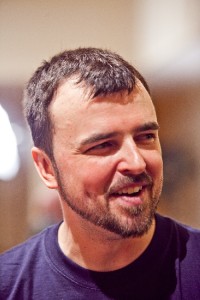You think you know, but you have no idea. This is the diary of a new PR professional working in the corporate world.
Working at the world’s largest technology company (Fortune #14) in New York is a dream come true. I’ve always been interested in pursing a career in corporate public relations and am so blessed to work in an industry I am very passionate about.
Currently, I am an external relations professional in Global Business Services at IBM recently hired in January 2010. IBM is the world’s largest technology company with more than 400,000 employees in over 170 countries that deliver the IBM brand experience daily to audiences both internal and external. My role and responsibilities includes working with IBM’s external audiences such as journalists, influencers, stakeholders, brand advocates and analysts. The IBM work environment is truly inspiring as I am surrounded by the best and most brilliant people in technology and communications.
My duties involve executing social media strategies for our C-suite study programs, promoting and supporting the IBM Institute for Business Value and thought leadership and generating awareness of the field of analytics. Although media relations is a part of my job duties, as a new hire (only 4 months on the job) I have not had the opportunity to pitch mainstream media but am confident I will within the next month.
Media relations is simply one portion of activities that is highly significant to PR especially within a corporation the size of IBM but there is also reputation management, employee communications, market and social insights as well as community and change management.
Practicing corporate public relations at such a large organization like IBM can be challenging because of the sheer size of the company. However, much to my surprise, no day is the same. As IBM celebrates its 100 year anniversary next year, our company and our brand constantly deals with external audiences. Moreover, it is also nice that IBM fully understands the importance and value of public relations to the organization and utilizes PR in all business functions.
Additionally, I feel my education and advance degree have prepared me well for a career in corporate PR because it gave me the skills to be a critical thinker and a real global view on the industry. Understanding communication theory has given me a wonderful roadmap as to why people behave the way they do. Additionally, marketing classes offered me great insights in to overall communication strategic planning.
I would encourage anyone who wishes to pursue a career in corporate PR with a mid-large size global firm to take some business classes in economics, general business and international marketing. In my graduate studies most of my electives were in international marketing. It also helps to learn a language.
In order to succeed in this particular field you must have great writing skills, language skills, editing skills, business acumen, the ability to think critically, and understand how a global integrated enterprise works.
My advice to PR graduates looking for jobs this year and next year is look into trendy up and coming practice areas like corporate social responsibility and social media jobs that focus on strategy. Also, use social media for your job search but have an integrated approach- not just use only one social media channel or tool. Remember, finding the job is not all about you (although we often think it is), it’s really about timing. When budgets, planning and the company has a dedicated space for the valuable assets you possess, they will let you know. In the meantime, do your homework and know timing is everything.
Brandi Boatner is an External Relations Professional at IBM and have 8+ years of experience in the PR industry.


